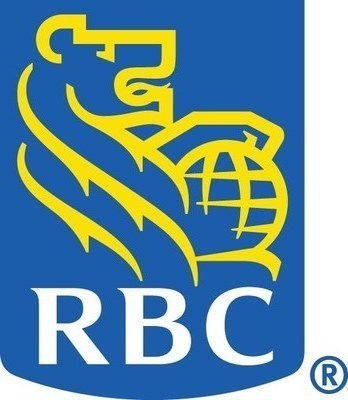Recession is likely in 2023, but U.S. markets could change course more quickly than investors might assume, RBC Wealth Management suggests
RBC Wealth Management forecasts a U.S. recession by mid-2023, driven by an inverted yield curve, rising inflation, and decreased consumer financial strength. Investors are advised to align portfolios with long-term strategies. Historically, the market rebounds before a recession concludes, and a new bull cycle may start even amidst economic downturns. Energy sector is favored for 2023 due to tight commodity supplies. Interest rates are expected to peak in early 2023, with a projected decline in bond yields. Investors should prioritize quality dividends and consider small to midcap investments.
- Potential for a new bull market cycle before the recession ends.
- Recovery expected in equity prices following midterm elections.
- Energy sector likely to perform well due to tight commodity supplies.
- Advice to focus on quality dividends suggests potential for stable returns.
- U.S. recession anticipated by mid-2023.
- Rising inflation and decreasing consumer financial strength could hinder growth.
Insights
Analyzing...
The most important objective for investors is to review portfolios and bring them in line with long-term strategic allocation recommendations
MINNEAPOLIS, Dec. 6, 2022 /PRNewswire/ - A U.S. recession may arrive mid-2023 based on historical economic markers and waning consumer financial power, RBC Wealth Management suggests in its Global Insight 2023 Outlook, released Tuesday.
An inverted yield curve on U.S. Treasuries, coupled with the arrival of "tight money" and inflation rates that have pushed real incomes below where they were a year ago, are further indications a recession and accompanying global equity bear market may be on the horizon. The most important objective for investors is to review portfolios and bring them in line with long-term strategic allocation recommendations.
History has shown that the market rebounds well before a recession ends – usually about three to five months before.
"Recessions are painful, but they are relatively short in the context of long-term investment horizons," said Kelly Bogdanova, vice president and portfolio analyst at RBC Wealth Management – U.S. "The economy and already successful businesses should adapt as they have in the past, and it's wise for investors to keep that in mind when making big portfolio decisions."
Even if the economy goes in to recession next year, with history as a guide, the equity market would likely begin a new bull market cycle before the recession ends, according to the report.
Moderating inflation data, negative investor sentiment around October lows, and the fact the S&P 500 has almost always delivered strong, positive returns for months following the U.S. midterm elections could mean a rally in equity prices over the next few weeks or months.
Investors could see the equity market continue to rally into 2023, then give way to another period of falling share prices and subsequently tick back up later in the year.
"Despite the lingering and anticipated economic challenges, the equity market has already absorbed significant blows, including one of the Fed's fastest and biggest tightening cycles in history," Bogdanova said. "It would also be rare for the S&P 500 to deliver back-to-back negative return years, and the corporate earnings outlook isn't as bad as in previous periods of economic stress."
Going into 2023, investors should consider leaning more heavily toward quality and sustainable dividends and away from individual company risks. Small-cap and midcap segments are attractive due to their valuation discounts and because they are likely to benefit as economic green shoots start to emerge, according to the report.
Within the large-cap S&P 500, the analysts continue to favor the energy sector next year. Tight energy commodity supplies will linger, supporting prices and earnings to a greater degree than in typical periods of economic weakness.
The Federal Reserve spent the past two years focused on boosting employment rates in the labor market and stabilizing pricing in the economy. Its next act will be to zero in on financial stability in 2023.
The historically aggressive tightening campaign will likely necessitate a far more cautious approach from policymakers, and a heightened focus on domestic and global financial vulnerabilities that may come as a result of higher interest rates, particularly from the strength of the dollar.
"This could mean the Fed soon places the blunt tool of rate hikes back in the toolbox and employs more surgical, macroprudential measures that help to ensure the soundness of, and liquidity within, the financial system," said Tom Garretson, fixed income senior portfolio strategist at RBC Wealth Management – U.S.
Interest rates may peak in early 2023 on the heels of an anticipated 50-basis-point hike at the Federal Reserve's December meeting. This could mark the last of sharp hikes, and rates could even drop modestly over the back half of 2023 in an attempt to mitigate the anticipated mid-year economic slowdown.
Yields across the fixed income landscape are expected to fall in 2023. The benchmark 10-year Treasury yield could fall below
The window for fixed income investors to put money to work is open, but it could close sooner than expected. If yields continue to fade over the course of 2023, that could introduce heightened reinvestment risk for short-maturity securities. Analysts continue to favor a strategy of locking in historically high yields in intermediate and longer-dated bonds.
The Global Insight 2023 Outlook also presents RBC Wealth Management's house position for regional equity and fixed income markets. Those views can be found here.
Royal Bank of Canada is a global financial institution with a purpose-driven, principles-led approach to delivering leading performance. Our success comes from the 95,000+ employees who leverage their imaginations and insights to bring our vision, values and strategy to life so we can help our clients thrive and communities prosper. As Canada's biggest bank and one of the largest in the world, based on market capitalization, we have a diversified business model with a focus on innovation and providing exceptional experiences to our 17 million clients in Canada, the U.S. and 27 other countries. Learn more at rbc.com.
We are proud to support a broad range of community initiatives through donations, community investments and employee volunteer activities. See how at rbc.com/community-social-impact.
In the United States, RBC Wealth Management operates as a division of RBC Capital Markets, LLC. Founded in 1909, RBC Wealth Management is a member of the New York Stock Exchange, the Financial Industry Regulatory Authority, the Securities Investor Protection Corporation, and other major securities exchanges. RBC Wealth Management has
![]() View original content to download multimedia:https://www.prnewswire.com/news-releases/recession-is-likely-in-2023-but-us-markets-could-change-course-more-quickly-than-investors-might-assume-rbc-wealth-management-suggests-301696463.html
View original content to download multimedia:https://www.prnewswire.com/news-releases/recession-is-likely-in-2023-but-us-markets-could-change-course-more-quickly-than-investors-might-assume-rbc-wealth-management-suggests-301696463.html
SOURCE RBC Wealth Management - U.S.








